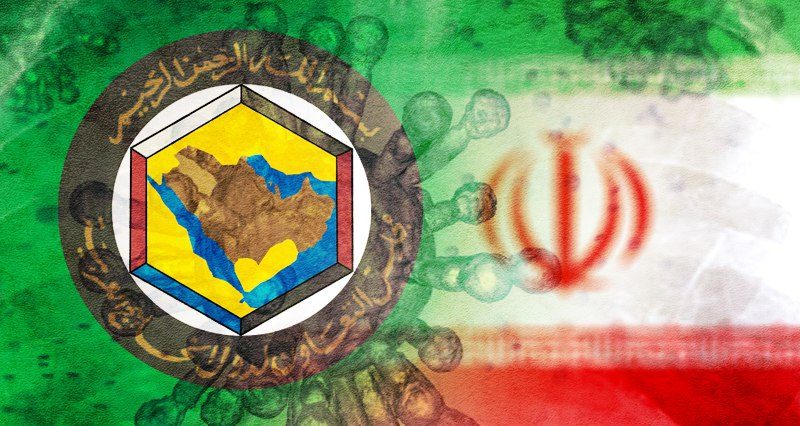Relations between Iran and Arab countries have had ups and downs throughout history.
Since Muslims conquered the Iranian empire and turned the Iranians to Islam, the Iranians have excerted their influence on the Caliphate system. As a result, Muslim countries have witnessed constant quarrels between the Persians, Turks and Arabs in the sphere of geopolitical influence.
The debate was predominantly led by Egypt representing African Muslims and inhabitants of the Arab peninsula as representatives of traditional Arab Muslims, Turkey and Persia.
Arabs were under the control of the Ottoman Empire for centuries and were deeply influenced by Turkish culture- however, after the fall of the Empire they tried to distance themselves from it, choosing Arab nationalism following Egypt’s lead, or the Sunni Salafism of Saudi Arabia.
Many likely do not realize that Iranians were Sunni Muslims until about six hundred years ago and that the first waves of Ismaeili Shiite Ideology came to Iran from Egypt while it was ruled by the Fatemi Government (which ruled Egypt, North Africa and west of the Arab peninsula till 1171).
Shiite Ideology spread among Iranians as a political stand against Arab influence in Persia.
In 1501, the Safavid dynasty started ruling Iran and united the country. The only way it was able to unite Iranians despite social and racial divides was via the spread of Shiite Islamic Ideology.
When Mohammad Abd Alwahab was able to join forces with Mohammad Bin Saud in 1744 and establish the first Saudi Dynasty, the first goal of the followers of Muhammad Abd Alwahab (now known as Wahabis) became to kill Shiites, who they considered to have betrayed Islam. The main debates between Iranians and Saudis started at that time, especially after the Saudis attacked Karbala, the Holy city of the Shiites, massacring the inhabitants.
Even though the Egyptians destroyed the first Saudi Dynasty by the order of the Ottoman Empire, the enmity between Saudis and Iranians didn’t end there, continuing till the third Saudi Dynasty was established (the same power which rules Saudi Arabia today).
ENMITY AFTER THE ISLAMIC REVOLUTION
The Islamic revolution in Iran in 1979 was influenced by many Muslim thinkers around the world; believe it or not, many of those thinkers believed that such revolution would continue on to Egypt, Turkey and even Saudi Arabia.
Many of the ideas behind the Islamic revolution were held in common with other Islamic movements such as the Muslim Brotherhood.
It should be mentioned that the current leader of the Islamic Revolution in Iran translated the books of Muslim Brotherhood thinkers into Persian before the Islamic Revolution.
The leaders of Arab countries were afraid that the waves of the Islamic revolution would hit them as well, so they gave all the support they could to Saddam Husain in order to attack Iran, creating a new era of enmity between Iran and the Arab world.
After the Iran-Iraq war, relations between Iran and these countries started to improve– especially after Iraq attacked Kuwait. After the Americans invaded Iraq, a new quarrel for influence started between Iran and Persian Gulf Arab countries seeking influence in Iraq.
The debate reached its peak after Israel withdrew from Lebanon and Hezbollah (supported by Iran) claimed victory, the first victory Arab victory against Israel in the region. Hezbollah’s leader, Sayed Hassan Nasrallah, became so popular and influential no Arab leader could deny it.
Challenges between Iran and Persian Gulf Arab countries reached their peak with the start of the so-called Arab Spring, where Iranian supported Islamists attempted to establish their own states, causing the Persian Gulf Arab Countries to fear that the waves would reach them too.
These countries planned to weaken Iran’s influence in the region by bringing down its strongest ally among the Arab Countries, the President of Syrian Arab Republic Bashar Al-Assad. This eventually forced Iran to enter into a proxy war with the Persian Gulf Arab Countries in Syria.
Gulf Cooperation Council Summit: What Does It Have in Store for Iran?
In Bahrain and Yemen, Iran continued to support Shiite movements against the country’s pro Saudi leader. The Saudis then invaded Bahrain to force their will over the Majority of Bahraini people and cut out Iranian influence in the Arab peninsula, which Saudi Arabia sees as its backyard.
In Yemen, the Saudis were not so successful in imposing their will: they are still facing fierce resistance from the Yemeni people to this day.
While both countries at least tried to maintain a minimal level of friendly relations, the beheading of Shiite high ranking Saudi Cleric Nemir Al-Nemir in Saudi Arabia and the killing of about 1200 Iranian pilgrims in an incident in Mecca led to fierce protests against the Saudi embassy in Tehran and Saudi Consulate in Mashhad, after which relations between Iran and Saudi Arabia and Bahrain were cut and relations between Iran and UAE, Kuwait and Qatar worsened.
Protest around Saudi Arabian embassy in Tehran#IRAN#Saudi Arabia#Nimr al-Nimr@ATaherkenareh pic.twitter.com/KFmJwiuXLY
— Abedin Taherkenareh (@ATaherkenareh) January 3, 2016
Afterwards, relations between Iran and Qatar returned into normal due to debates between Qatar and other Persian Gulf Arab countries.
Over the past couple of years, President Ruhani’s government has done its best to solve the debates between Iran and Persian Gulf Arab countries, especially with Saudi Arabia, but it hasn’t been successful.
The Iranians believe that it is difficult to better relations with Saudi Arabia due to the hawkish nature of the politicians ruling Saudi Arabia (and the UAE for that matter) who depend on enmity against Iran to stay in power.
DEVELOPMENTS FOLLOWING RECENT IRANIAN-US HOSTILITIES
After the recent hostilities between Iran and the US, some Emirati messengers visited Iran trying to deescalate the situation and form new lines of dialogue.
The Saudis sent various messages through other countries such as Pakistan, Iraq and Oman in order to start secret talks with Iran.
According to some Iranian diplomats, Iran even gave positive responses to these messages… However, it seems that American and Israeli pressure proved more dominant and the Saudis have not followed up on the latest efforts to bring both sides to the negotiation table.
As Washington and Tehran faced off, Saudi Arabia and Iran held secret talks https://t.co/eqSHmtfksK
— The New Arab (@The_NewArab) December 14, 2019
An Iranian diplomat told me recently that Saudi Arabia is facing a big shift in power due to King Salman’s poor health, and that a fight for power has already begun. While it is still unclear who will take power, it is unlikely we will see any improvement in relations between the two sides.
EFFECT OF CORONAVIRUS ON IRANIAN-ARAB RELATIONS
In the wake of the coronavirus epidemic, tourism, pilgrimages and economic relations between Iran and Persian Gulf Arab countries have reached their lowest levels ever.
Flights have been stopped and countries have stopped importing and exporting goods to and from Iran. Tourism has ended altogether and no Iranian pilgrims are likely to visit Saudi Arabia this year.
Due to American sanctions, the UAE used to be one of the main flight hubs for Iran. Now that hub has been closed. Dubai used to be one of the main sources of trade for the Iranians, and is operating at lower than half capacity.
Oman was able to attract a lot of Iranian merchants and travelers by issuing special trade laws for foreign investors– now, as a result of coronavirus, flight connections between Iran and Oman have been halted; Iranian merchants are not even being allowed back to Oman to check on their businesses.
Kuwait also stopped flights with Iran and anyone who has visited Iran is required to stay in quarantine for at least 14 days before entering the country.
#Kuwait’s top diplomat said his country would give a donation of $10 million to Iran to help the efforts to contain #coronavirus epidemichttps://t.co/5Wiwa4QSEE pic.twitter.com/SkizqgOVoB
— Tasnim News Agency (@Tasnimnews_EN) March 17, 2020
As for Qatar, it’s Emir issued an order to send medical aid to Iran. Qatar is still forced to use Iranian space and to keep flight connections since it is facing a boycott from neighboring Arab countries. However, it is also not allowing Iranians to travel to Qatar without being quarantined for fourteen days. Iran does not have a considerable amount of business with Qatar in any event.
Qatar has sent about six tonnes of medical equipment and supplies to Iran as the country fights the novel coronavirus (COVID-19).#Qatar #Iran #MedicalAid #Help #COVID19 #QatarLivinghttps://t.co/lA7uNLo5et pic.twitter.com/p7qLfvlZ92
— Qatar Living (@qatarliving) March 15, 2020
Bahraini authorities have now found an excuse to put anyone who has travelled to Iran in quarantine. Even though the two countries have no official relations, many Bahraini Shiites or Bahraini citizens of Iranian origin used to travel to Iran frequently through other routes. Iranian authorities chose not to stamp their passport so that they don’t face any problem when they returned to Bahrain, a policy which has been strongly criticized by Bahrain and Saudi Arabia. The two countries are now accusing Iran of aiding in the spread of coronavirus, as it has been impossible to tell who has visited Iran and potentially been infected.
Bahrain accuses Iran of 'biological aggression', Gulf states try to curb coronavirus https://t.co/t8tDEOjosU
— Reuters Iran (@ReutersIran) March 12, 2020
Many Saudi and Bahraini Shiites still visit Iran, especially the holy cities of Qom and Mashhad, both of which have been hit hard by coronavirus.
Le parlement de Bahreïn a voté à la majorité pour abandonner ses citoyens en Iran. Ils ne peuvent pas revenir à Bahreïn même s'ils sont exempts de Coronavirius. pic.twitter.com/KWlTYnX2hF
— Le Collectif des Vigilants (@HArlerte) March 13, 2020
Due to new procedures, Qom and Mashhad will be quarantined which will naturally cut-off Persian Gulf Shiite pilgrims and cause Iran to lose substantial foreign cash income.
The Saudi authorities have also used the coronavirus epidemic as an excuse to put Shiite cities in Saudi Arabia under quarantine. This is to Riydah’s benefit given the political changes taking place at the moment: naturally, MBS does not want any disturbance from these areas.
Saudi Arabia has accused Iran of being “directly responsible” for the spread of coronavirus and condemned Tehran’s “irresponsible” policy of allowing Saudi nationals to enter the country without stamping their passports, Okaz newspaper reports pic.twitter.com/7HogeDn0Jy
— BBC Monitoring (@BBCMonitoring) March 11, 2020
While the excuse has valid reasoning behind it, the quarantining of these cities should be lifted after two weeks, especially considering that Saudi Arabia has halted flights from over 50 countries and stopped accepting anyone into the country who had a connection in Iran.
Most flights to and from Iran have also been cancelled.
USING CORONAVIRUS AS A POLITICAL TOOL
Iran is obviously facing a monumental challenge as a result of the epidemic– nonetheless, it is also true that some countries are exploiting the situation to push false propaganda against Tehran due to historic enmity. In other words, they are taking advantage of a tragedy for selfish political purposes. Given the scale of the epidemic, countries should instead unite in order to find common solutions.









Leave a Reply